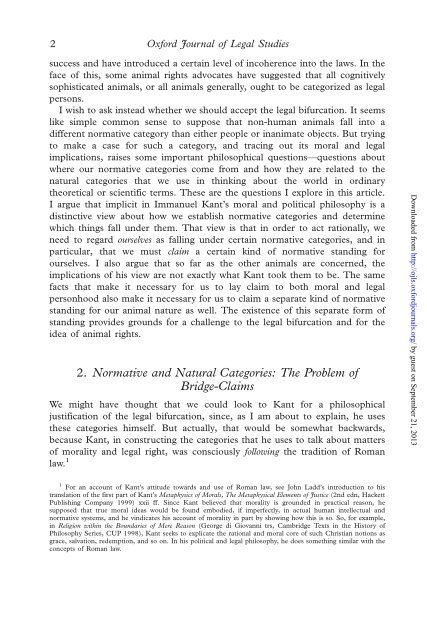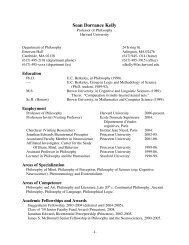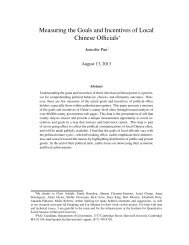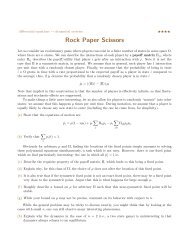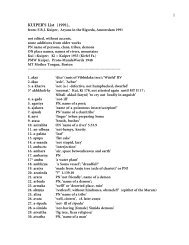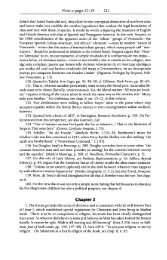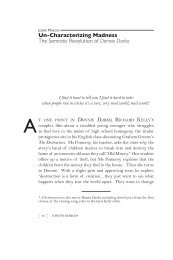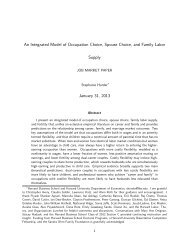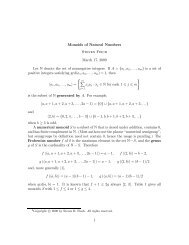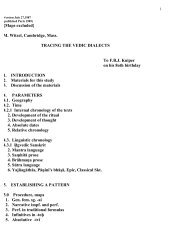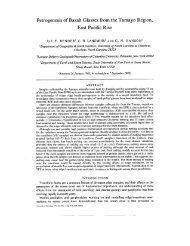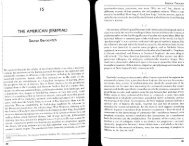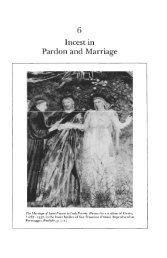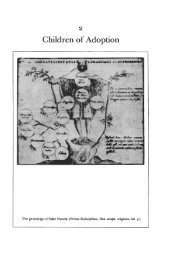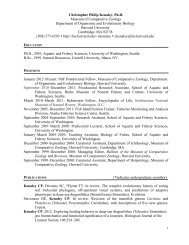Kantian Ethics, Animals, and the Law - People.fas.harvard.edu
Kantian Ethics, Animals, and the Law - People.fas.harvard.edu
Kantian Ethics, Animals, and the Law - People.fas.harvard.edu
Create successful ePaper yourself
Turn your PDF publications into a flip-book with our unique Google optimized e-Paper software.
2 Oxford Journal of Legal Studies<br />
success <strong>and</strong> have introduced a certain level of incoherence into <strong>the</strong> laws. In <strong>the</strong><br />
face of this, some animal rights advocates have suggested that all cognitively<br />
sophisticated animals, or all animals generally, ought to be categorized as legal<br />
persons.<br />
I wish to ask instead whe<strong>the</strong>r we should accept <strong>the</strong> legal bifurcation. It seems<br />
like simple common sense to suppose that non-human animals fall into a<br />
different normative category than ei<strong>the</strong>r people or inanimate objects. But trying<br />
to make a case for such a category, <strong>and</strong> tracing out its moral <strong>and</strong> legal<br />
implications, raises some important philosophical questions—questions about<br />
where our normative categories come from <strong>and</strong> how <strong>the</strong>y are related to <strong>the</strong><br />
natural categories that we use in thinking about <strong>the</strong> world in ordinary<br />
<strong>the</strong>oretical or scientific terms. These are <strong>the</strong> questions I explore in this article.<br />
I argue that implicit in Immanuel Kant’s moral <strong>and</strong> political philosophy is a<br />
distinctive view about how we establish normative categories <strong>and</strong> determine<br />
which things fall under <strong>the</strong>m. That view is that in order to act rationally, we<br />
need to regard ourselves as falling under certain normative categories, <strong>and</strong> in<br />
particular, that we must claim a certain kind of normative st<strong>and</strong>ing for<br />
ourselves. I also argue that so far as <strong>the</strong> o<strong>the</strong>r animals are concerned, <strong>the</strong><br />
implications of his view are not exactly what Kant took <strong>the</strong>m to be. The same<br />
facts that make it necessary for us to lay claim to both moral <strong>and</strong> legal<br />
personhood also make it necessary for us to claim a separate kind of normative<br />
st<strong>and</strong>ing for our animal nature as well. The existence of this separate form of<br />
st<strong>and</strong>ing provides grounds for a challenge to <strong>the</strong> legal bifurcation <strong>and</strong> for <strong>the</strong><br />
idea of animal rights.<br />
2. Normative <strong>and</strong> Natural Categories: The Problem of<br />
Bridge-Claims<br />
We might have thought that we could look to Kant for a philosophical<br />
justification of <strong>the</strong> legal bifurcation, since, as I am about to explain, he uses<br />
<strong>the</strong>se categories himself. But actually, that would be somewhat backwards,<br />
because Kant, in constructing <strong>the</strong> categories that he uses to talk about matters<br />
of morality <strong>and</strong> legal right, was consciously following <strong>the</strong> tradition of Roman<br />
law. 1<br />
Downloaded from http://ojls.oxfordjournals.org/ by guest on September 21, 2013<br />
1 For an account of Kant’s attitude towards <strong>and</strong> use of Roman law, see John Ladd’s introduction to his<br />
translation of <strong>the</strong> first part of Kant’s Metaphysics of Morals, The Metaphysical Elements of Justice (2nd edn, Hackett<br />
Publishing Company 1999) xxii ff. Since Kant believed that morality is grounded in practical reason, he<br />
supposed that true moral ideas would be found embodied, if imperfectly, in actual human intellectual <strong>and</strong><br />
normative systems, <strong>and</strong> he vindicates his account of morality in part by showing how this is so. So, for example,<br />
in Religion within <strong>the</strong> Boundaries of Mere Reason (George di Giovanni trs, Cambridge Texts in <strong>the</strong> History of<br />
Philosophy Series, CUP 1998), Kant seeks to explicate <strong>the</strong> rational <strong>and</strong> moral core of such Christian notions as<br />
grace, salvation, redemption, <strong>and</strong> so on. In his political <strong>and</strong> legal philosophy, he does something similar with <strong>the</strong><br />
concepts of Roman law.


